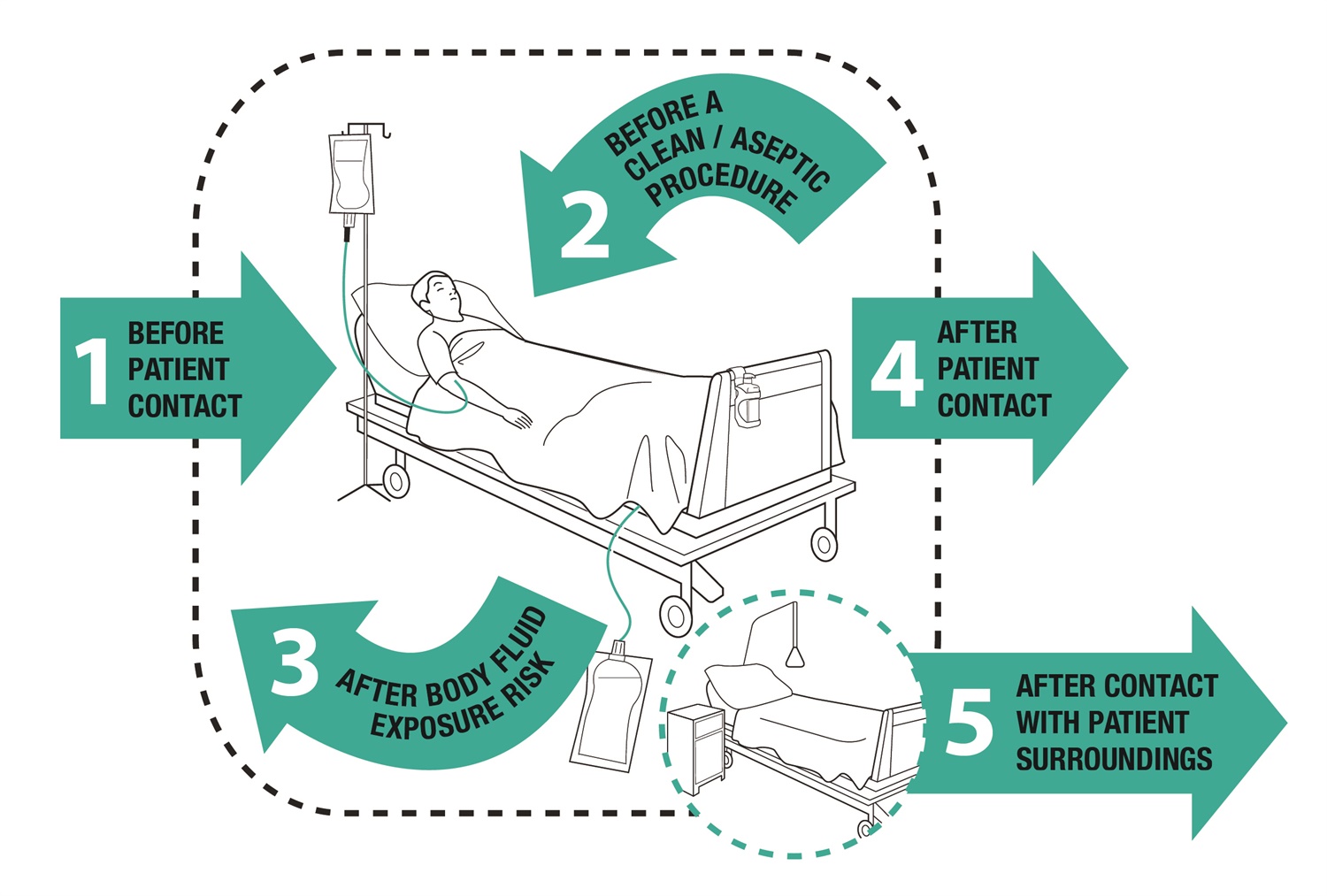05.05.16
The MP’s View: Advancing Hand Hygiene Compliance in the NHS
.jpg) Andrea Jenkyns, MP for Morley and Outwood and founder of the ‘Handz’ hand hygiene campaign, refocuses the attention that must be paid to the prevention of healthcare associated infections (HCAIs). After personally experiencing the devastating impact of HCAIs, and recent data indicating a rise in the number of cases recorded, Ms Jenkyns is calling for urgent action to improve hand hygiene compliance across the NHS.
Andrea Jenkyns, MP for Morley and Outwood and founder of the ‘Handz’ hand hygiene campaign, refocuses the attention that must be paid to the prevention of healthcare associated infections (HCAIs). After personally experiencing the devastating impact of HCAIs, and recent data indicating a rise in the number of cases recorded, Ms Jenkyns is calling for urgent action to improve hand hygiene compliance across the NHS.
The 21st century NHS is facing many challenges, one of these being an increase in HCAIs. A number of healthcare workers are failing to adhere to adequate hand hygiene practises whilst at work, causing infections to hospital patients to spread. This is a pertinent concern which must be looked into, sooner rather than later.
Research conducted by the European Centre for Disease Prevention and Control in 20111 worryingly showed that 6.4% of hospital patients – one in 16 – contracted an infection while in hospital. This study is being replicated later on this year to provide the latest figures on HCAIs in England; rates have crept up in recent years and suggest progress in the past five years may not mirror those in the mid-2000s. Alarmingly, 300,000 patients develop a HCAI in England every year, with 5,000 of those cases proving fatal.
My father was diagnosed with lung cancer in 2011. His initial prognosis was good, and he was expected to live for another 10 years in comfort. However, shortly after having fluid drained from his lungs to relieve breathlessness, his wound became infected. Upon readmission to hospital, he was diagnosed with MRSA, and passed away a few months later. The room in which he had surgery in was also used to store cleaning equipment, and during his last months in hospital, I became acutely aware of a lack of awareness around hand hygiene from the medical staff. Since then, I have vowed to do everything I can to raise awareness around the critical importance of hand hygiene in keeping patients safe.
It is estimated that 20-40% of all HCAIs can be avoided by better communicating and better application of the existing hand hygiene rules and practices2. If there is anything that can be used to support that notion, then local NHS trusts should be active in their implementation.
Better Reporting, Stronger Compliance
There is no doubt that doctors and nurses are best-positioned to know how to look after patients and I am by no means suggesting that anyone is deliberately avoiding washing their hands. It is more a case of identifying behavioural habits that are not being discouraged by their employers.
That is why they need support from a management level – to ensure that hand hygiene compliance is being adhered to at all times. When vulnerable patients’ wellbeing is at stake, healthcare workers must have a full understanding on how important hand hygiene is, and how to ensure their patients remain protected in their care.

Hand hygiene reporting methods must also be improved for this problem to be effectively tackled. Reported hand hygiene rates in the NHS are much higher than the actual rate of compliance, due to the inaccurate methods of gathering data. New ways of reporting need to be developed to ensure that workers are held accountable for delivering the safe, high-quality care that the NHS is renowned for worldwide.
Despite the high number of patients who contract infections whilst being treated at hospitals, it is extremely difficult to pinpoint the moment when the contraction occurred. In my father’s case, I witnessed many missed opportunities for hand washing. However, by collating accurate data on hand hygiene compliance, it may be possible to spot patterns of behaviour amongst staff that could lead to preventative action.
The common method of using direct observation to measure hand compliance is deeply flawed in this regard. The information can be subjective, imprecise and prone to false positives. For staff, knowing when they are being watched might make them overplay their regular habits, running their hand under a sanitising dispenser more frequently than they might normally – this behaviour is commonly known as the Hawthorne effect.

However, if healthcare operators can see first-hand through precise, quantifiable data that their staff are not washing their hands at the rate required to achieve compliance, then they can take action to communicate this to the healthcare workers. From there, these highly-trained professionals can re-evaluate their hand hygiene practices in every action they take before, during and after treating patients. With electronic data readily available, it provides an accurate picture of what is being done to prevent the contraction and spread of infections – not only for staff, but for patients and their relatives too, empowering them with the knowledge that the standard of care is constantly being reviewed and improved.
As such evidence suggests that more sophisticated, electronic hand hygiene compliance reporting can change behaviours that will save lives.
Supporting the Existing Causes
Suggesting technological reporting solutions is one thing, but we must generate the support for its implementation to make real strides. To do that, we need to make the issue more prevalent in healthcare discussions – meaning we need to back those that support the issue passionately.
There are several fantastic causes that seek to generate awareness on the importance of hand hygiene in healthcare. The WHO ‘SAVE LIVES: Clean Your Hands’ campaign is one excellent initiative that comes to mind, providing a wealth of resources to help hospitals and healthcare establishments raise awareness on the issue amongst their staff, the efforts of which amalgamate on a campaign day held on 5 May each year.
I myself know the devastating impact of HCAIs first-hand. One of the first things I did upon being elected as a Member of Parliament was launch the Handz campaign. Together with our likeminded supporters – from fellow politicians, to existing charities such as MRSA Action UK, to hand hygiene product specialists such as Deb Group – we strive to educate people, particularly the younger generation, on the importance of hand hygiene, with the view to establishing lifelong habits of good hand-washing practices.
As part of our efforts to continually drive awareness, we must look for new ways of gathering data, and encourage technological support that can be utilised to strengthen the message further, and, ultimately, provide the much-needed evidence to those in charge of our NHS premises.
The means to report on hand hygiene compliance in the NHS is out there. There are technical solutions that could revolutionise hand hygiene protocol and save thousands of lives each year, and prevent the tragic impact these needless deaths have on so many families across the UK. The difference that we can make is incalculable.
I would urge anyone who can help us to do so, either by getting in touch with ourselves at the Handz campaign, or through any of our dedicated supporters. Anyone with influence in the healthcare sector must ask themselves just one question: are we really doing all we can to reduce HCAIs?
For more information on Handz, visit: http://handz.org.uk/
(Image of Andrea Jenkyns c. Nick Daly)
References
1 – http://ecdc.europa.eu/en/publications/Publications/healthcare-associated-infections-antimicrobial-use-PPS.pdf
2 – http://www.nhs.uk/news/2012/05may/Pages/mrsa-hospital-acquired-infection-rates.aspx